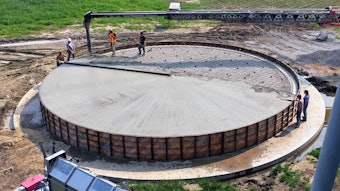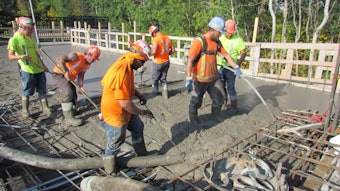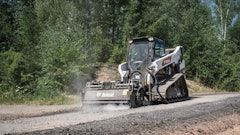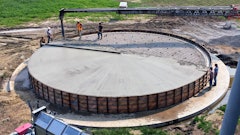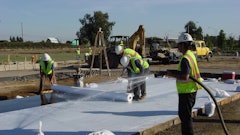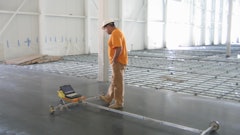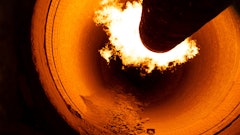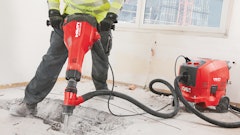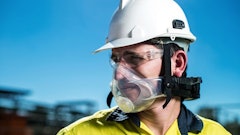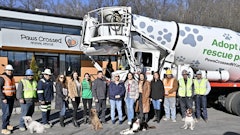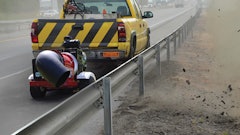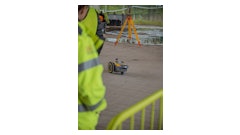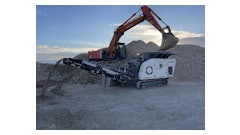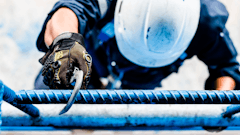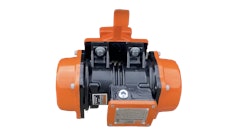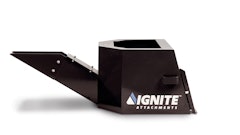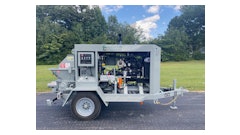
For crews surrounded by heavy machinery, power tools, vehicles, scaffolds, and wiring, the last thing they may be thinking about from a safety standpoint is the air they’re breathing.
Thing is, construction is a dirty business and according to the Occupational Safety and Health Administration (OSHA), one of the most common sources of carbon monoxide (CO) exposure in the workplace is the internal combustion engine. That’s why it’s important to consider what fuels and equipment are being used on-site. Air quality is not only important for workers’ comfort but also for their health. Poor indoor air quality has been tied to symptoms like headaches, fatigue, dizziness, shortness of breath, and sinus congestion, to name a few.
More Articles on Propane at the Jobsite:
3 Machines Powered by Propane That May Surprise You
Equipment You May Not Know Can Be Powered by Propane
4 Questions Contractors Should Ask When Considering Propane Construction Equipment
Propane offers a clean, efficient energy solution for construction crews, especially from an indoor air quality and CO standpoint. Here are three reasons propane equipment is the right choice for keeping crews safe, healthy, and productive.
1. Propane is a Low-emissions Energy Source
When it comes to selecting an energy source for job sites, choosing one with low emissions has become increasingly important. Fortunately, propane produces fewer greenhouse gas and CO emissions than gasoline and diesel. Notably, propane-powered small-engine job site applications can reduce CO emissions by up to 50%, greenhouse gas emissions by up to 17%, and sulfur oxide (SOx) emissions by up to 16% compared with gasoline-fueled models, according to data from the Propane Education & Research Council (PERC). Additionally, propane equipment emits fewer total nitrogen oxide (NOx) emissions than equipment fueled by electricity, gasoline, and diesel.
2. Propane can do More in More Places
For construction crews, their work environment can vary widely depending on the day and the project at hand. Propane, because of its low-emissions profile, offers the versatility to operate in properly ventilated indoor spaces and support healthy air quality for both employees and the surrounding community. In fact, whether operating indoors, outdoors, in semi-enclosed spaces, near sensitive populations, or in areas with strict emissions regulations, propane offers a safe, reliable energy source—ultimately allowing crews to do more in more places.
Plus, almost all new propane-powered indoor use equipment is required to have CO detectors on board, giving operators even more peace of mind. These detectors automatically shut off the equipment in the event of unsafe CO levels. Gasoline and diesel equipment, on the other hand, can produce a variety of chemicals and pollutants.
3. Propane is Only Getting Cleaner
Propane itself is seeing innovation, meaning the energy source is only getting cleaner. In the future, more propane will be made from renewable sources. Most notably, the National Renewable Energy Laboratory says the potential demand for renewable propane in California alone could surpass 200 million gallons a year by 2030.
Renewable propane is an emerging energy source that’s a byproduct of the renewable diesel and jet fuel production process, which converts plant and vegetable oils, waste greases, and animal fat into energy. Because it’s produced from renewable, raw materials, renewable propane is even cleaner than conventional propane—and far cleaner than other energy sources. And considering its chemical structure and physical properties are the same as traditional propane, renewable propane can be used for all the same applications.
Propane’s versatility extends to a long list of concrete construction equipment, helping crews to reduce emissions across a project site. Notably, propane can supply power to grinders and polishers, riding trowels, floor strippers, dust extractors, concrete saws, power buggies, power concrete trowels, and industrial vacuums used to collect concrete dust during grinder use.
To learn more about propane equipment and its role in cleaner, healthier air quality, visit Propane.com/Propane-Keeps-Air-Cleaner.
About the author
Matt McDonald is the director of off-road business development for the Propane Education & Research Council. He can be reached at [email protected].




